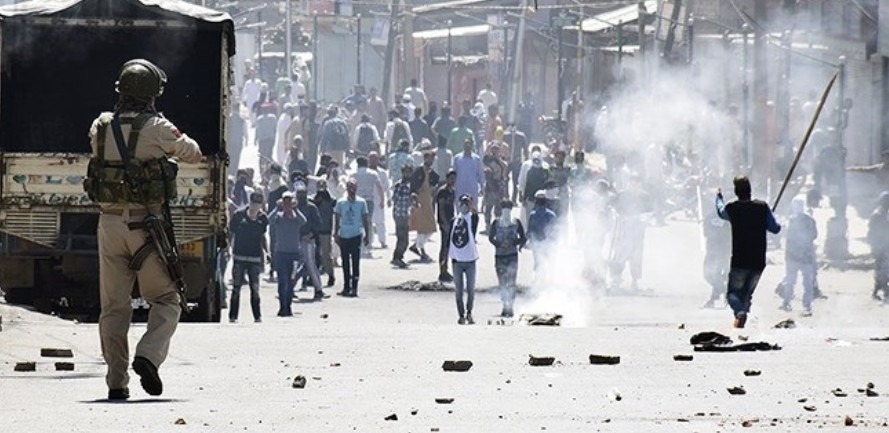The crisis over Kashmir – A reflection
On May 6 2025, India embarked on ‘Operation Sindoor’, targeting nine different areas of Pakistan and Pakistan-administered Kashmir, in retaliation for the alleged Pakistani militant attack on Pahalgam, India-administered Kashmir, which killed 26 people.
The overnight operation resulted in shockwaves being sent through Pakistan and Pakistan-administered Kashmir, with the explosions abruptly awakening residents throughout the regions. Pakistan was able to shoot down five Indian fighter jets, and Pakistan’s Defence Minister, Khawaja Asif, stated that Islamabad is “trying to avoid” a full-scale war, attempting to contain “this international confrontation to military targets only”. Islamabad has reported 26 people killed and 46 injured, while the Indian Army has stated that 10 civilians were killed by Pakistani shelling on its side of the de facto border between the two countries – referred to as the Line of Control (LoC).
These heightened tensions between India and Pakistan are nothing new for the two countries, with a tense relationship having been established ever since the India-Pakistan War in 1947
This rapid escalation follows the apparent militant attack on tourists in Pahalgam in India-administered Kashmir, in which 26 civilians were killed on April 22 2025. India claims that Pakistan has supported the attack, despite Pakistan’s strong denial and the lack of evidence supporting such a claim. Regardless, India proceeded to suspend its participation in the Indus Water Treaty, the water usage and distribution agreement it holds with Pakistan, while Pakistan threatened to withdraw from the Simla Agreement – signed in July 1972 – which governs the LoC and sustains the peaceful resolution of any disputes that may arise between the two states.
These heightened tensions between India and Pakistan are nothing new for the two countries, with a tense relationship having been established ever since the India-Pakistan War in 1947, in which both countries disagreed over who should control Kashmir, with the divisions between the Indian and Pakistani-controlled regions of the territory having required a UN-mediated ceasefire in order to reach a resolution.
However, in September 1965, conflict over the region resumed, with India claiming Kashmir was an “integral” part of the country. Following this, China became involved, disputing India’s control over Aksai Chin and reaching its own agreement with Pakistan, resulting in the area seemingly being controlled by all three countries. However, the region remained contested, leading to another war in December 1971, the outcome of which resulted in the creation of Bangladesh. Consequently, a drive for Kashmiri independence arose from separatist groups, such as the Jammu and Kashmir Liberation Front, and whilst Pakistan backed Kashmir’s “right to self-determination”, India cracked down on such groups.
India accuses Pakistan of facilitating the activities of Pakistan-based armed groups that have taken responsibility for various attacks that have occurred in India-administered Kashmir
Although these tensions, stretching over three wars, seem to have gradually decreased, with multiple ceasefire agreements being signed, over recent years, particularly in 2016 and 2019, these tensions have been reignited. For example, in 2016, after the killing of Burhan Wani, a high-profile separatist figure, there were various exchanges of fire along the LoC, resulting in heightened tensions as Indian forces blamed Pakistan for backing the armed groups targeting India-administered Kashmir.
These hostilities continued in 2019, almost to the brink of war, following a terror attack which killed 40 Indian personnel in Pulwama, with the issue escalated by Prime Minister Narendra Modi’s revocation Jammu and Kashmir’s semi-autonomous status. This decision was deemed by Pakistan to be a violation of the Simla Agreement and, despite various protests, India proceeded with their decision and continued to deploy troops whilst placing the area in a lockdown, shutting off internet access and detaining people.
Pakistan points to the undiplomatic ruling of the region by India and continues to assert its support for the Kashmiri separatist movement
Such current conflicts make clear the fragile state of India and Pakistan’s relationship, with the two states still unable to reach an agreement as to the ongoing situation in Kashmir. India accuses Pakistan of facilitating the activities of Pakistan-based armed groups that have taken responsibility for various attacks that have occurred in India-administered Kashmir, as well as in India. A prime example of this would be the 2008 Mumbai attack, in which 166 people were killed over three days. However, despite the allegations made by India, the Pakistani government denies complicity in the violence in India-administered Kashmir. Instead, Pakistan points to the undiplomatic ruling of the region by India and continues to assert its support for the Kashmiri separatist movement, as both states fail to take responsibility for their role in the conflict.
Therefore, as tensions increase between the two countries and Kashmir once again suffers at the hands of separatist violence, the actions of both India and Pakistan point to an inevitable escalation. With citizens of all countries in the region subject to this consistently strained relationship, India plans to construct a railway connecting India-administered Kashmir to the Indian plains – claiming to boost “spiritual tourism and create livelihood opportunities”, despite the varying opinions on who is to control the region. As India remains insistent on claiming that Kashmiri armed groups are backed by Pakistan, and Pakistan remains intent on maintaining its support for Kashmir separatist groups, the relationship between the two countries seems destined to remain fragile – with Kashmir at the centre of their battle for control.

Comments